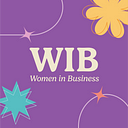Never Have I Ever: A Look into Female Students’ Early Career Experiences
By Amelia Tran, Officer of Research
The second article of the Women in Business (WIB) Spring 2021 research initiative covers the expectations and experiences in the workplace of 56 female Northeastern students. Data is collected from our recent survey on Gender Equality in Higher Education and in the Workplace.
From Interviewing …
We asked the respondents two questions about their interview experience, “Have you ever experienced gender bias when interviewing for a co-op?” and “Have you ever experienced gender bias when interviewing for a job opportunity not associated with Northeastern?”
For the first question, only 1.79% of the respondents have spotted gender bias in their interviews while 21.43% have not. 16.07% are not sure. 60.71% have not interviewed for a co-op, so this question is not applicable to them. The number of respondents experiencing gender bias increases when it comes to interviewing for job opportunities that are not part of the Northeastern co-op program or on-campus positions. More than 10.71% of the respondents believe that they have experienced gender bias, showing an 8.93% increase. On the other hand, the percentage of students having positive, inclusive interview experience declines by 16.07% to around 44.64%. Roughly 14.29% are not sure if they have experienced gender bias. This second question is not applicable to 30.36% of our respondents who are freshman or sophomore and have yet to complete a co-op or an internship.
…to Working
Top five sectors that our respondents aspire to work in after graduation are Financials, Communication Services, Technology, Real Estate, and Health Care. Among these sectors, according to a 2020 report by the World Economic Forum, Financials has the largest gender pay gap (36%) while Health Care is the sector with the smallest gender pay gap (15%). In terms of share of women, Health Care has the largest number of women professionals (51%) while Technology has the least women’s representation (24%). For students graduating now and in the next few years, it is positive that these numbers will change in favor of women, says the report, as “tapping into the female talent pool is increasingly regarded as a prominent and promising area for workforce planning.” Other sectors frequently mentioned in our survey include Entertainment, Consumer Staples, Consumer Discretionary, and Energy.
Similar to the questions about the interview process, we asked our respondents two questions: “Have you ever experienced gender bias on your co-op(s)?” and “Have you ever experienced gender bias in the workplace in general?” While only 5.36% of our respondents have experienced gender bias on their co-ops, approximately 39.29% have dealt with gender bias in their internships, apprenticeships, and part-time jobs. The 33.93% difference may be attributed to the commitment of Northeastern and co-op employers to gender equality, diversity, and inclusion.
Statistics also reveal that nearly half of respondents have never noticed their female colleagues get treated unfairly due to gender bias. About 5% are unsure. About 48% believe they have noticed such incidents. According to the Companies Drain Women’s Ambition after 2 Years article on Harvard Business Review, this number indicates “a huge missed opportunity because positive affirmation creates huge benefits.”
An interesting finding is that, for every yes/no question with 3 options — yes, no, maybe, maybe usually constitutes one-fifth of the answers. For example, 10 respondents are unsure about whether they have difficulty making non-work-related conversations with their male colleagues. Similarly, 9 respondents cannot affirm that they have experienced gender bias. If yes and no are like black and white, maybe is like the gray area where people are unable to recall or describe their experiences with certainty. Why is it difficult for some women to tell if they have experienced or witnessed gender bias, especially unconscious biases? How strong is the link between inadequate gender equality or diversity training and women’s ability to identify or recall instances when they have experienced gender bias? It would be interesting to do a deep dive on these questions in the future as part of our research initiative.
